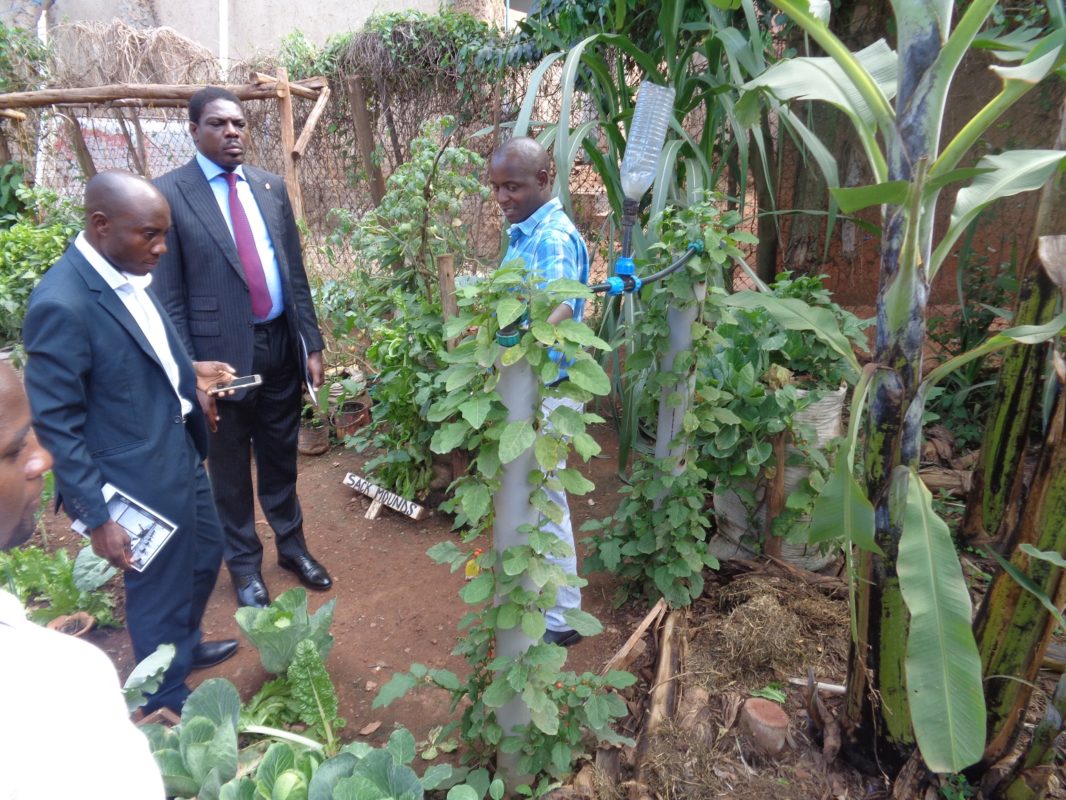For many of those living in and around Uganda’s capital city, COVID-19 has presented opportunities to make a profit and contribute to Kampala’s food basket.
Kampala typically depends primarily on agricultural produce grown by farmers in outlying areas of the country. But the lockdown and transport restrictions disrupted the links between rural and urban areas, threatening the city’s food security.
In response, urban and peri-urban farmers began catering to the city’s numerous food markets, where they’re doing a roaring trade in leafy vegetables, Irish potatoes, plantain, corn and other fruits and vegetables.
Janson Mugabe is one of those urban farmers. He said Kampala’s peri-urban agricultural sector has become an important source of food for many of the city’s low-income earners, who feared they would have nothing to eat when restrictions on movement were imposed.
In an effort to allay those fears, the Ugandan government distributed food rations, including corn flour and beans, to about 1.5 million low income residents of Kampala and its environs. But by all accounts, not everyone in need in got food.
“For some families, the food supplied by the government has not been suffice. To that end, they have had to make do with fresh food supplies from urban farmers and urban farming groups,” said Mugabe, who is also the director of Mushana Agribusiness School, one of Kampala’s peri-urban agricultural training schools.
“As an alternate nutritional and food security safeguard, the urban and peri-urban agricultural sector has helped to maintain and diversify the city’s food supply chain,” he continued. “In many ways, it has filled the food gap which was created by the lockdown.”

Agricultural researcher David Omoding agreed. “Estimates show that in the lockdown, over 65 percent of Kampala’s vegetable supplies have been provided by the sector.”
In Kampala and other cities in the East African region, urban agriculture serves as a vital resource in the livelihood strategies of many city dwellers and it has thrived during the COVID-19 lockdown.
The RUAF Global Partnership on sustainable urban agriculture and food systems recently reported that urban agriculture in Nairobi, Kenya’s capital, was doing well during the lockdown. Statistics from the University of Nairobi indicate that about 30 percent of households in the city benefit from urban and peri-urban agriculture, such as vertical gardens and hydroponics.
In Dar es Salaam, Tanzania’s capital, urban agriculture comprises at least 60 percent of the informal economic sector and is the second-largest urban employer.
The practice dates back to the 1890s in Kampala, where it is mostly carried out in backyards, around buildings and occasionally on public land. Across the city and its environs, there are numerous signs of urban agricultural activity, including crop cultivation, fish farming and cattle breeding.
“For several low income households, bearing a hand in these urban farming activities, the lockdown has meant improved income-generating portfolios,” Omoding said. “The urban agricultural sector’s prospects for the future also look rosy as the city’s population increases and as Uganda pursues its goals for Vision 2040, which among other things calls for the modernization and transformation of agriculture.”
Taking the long view
“One of the reasons urban agriculture will continue to do well and remain resilient in the post COVID-19 period is because Kampala’s governing authority has integrated it into the city’s slum development plans,” said agribusiness expert Fred Ainomugisha. “What is needed is better access to credit and agro-inputs for the urban farmers.
“If it is harnessed well, peri-urban and urban agriculture can be a viable antidote to the youth unemployment and crime pickles that many metropolises in Uganda and East Africa face,” Ainomugisha added.
In Kampala suburbs such as Bwaise, several youth groups have been gaining urban farming skills. At the Mushana Agribusiness School, for example, apprentices are taught how to carry out vertical farming in small spaces.
“The school teaches apprentices about backyard and compound farming on spaces of 2-3 square meters,” Mugabe said. “Thus far, over 70 youth apprentices have been trained, but the target is to train over 1,000 youth living in Kampala’s slums by the middle of August.” However, meeting that goal depends on the situation with COVID-19.
